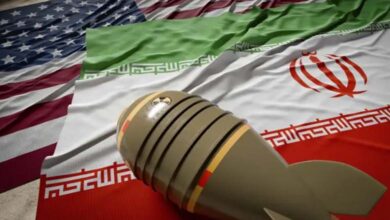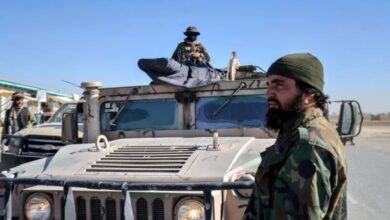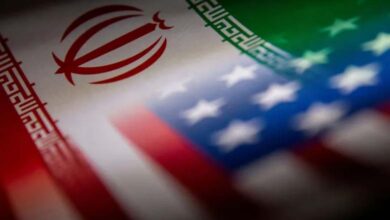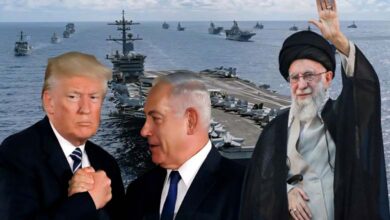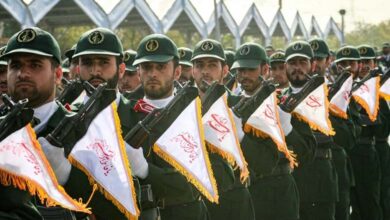French-American Dispute Reflects on Lebanon’s Quintet Work
Divergences and disagreements are escalating between Washington and Paris regarding the situation in southern Lebanon, the presidential vacuum, and issues related to the oil sector
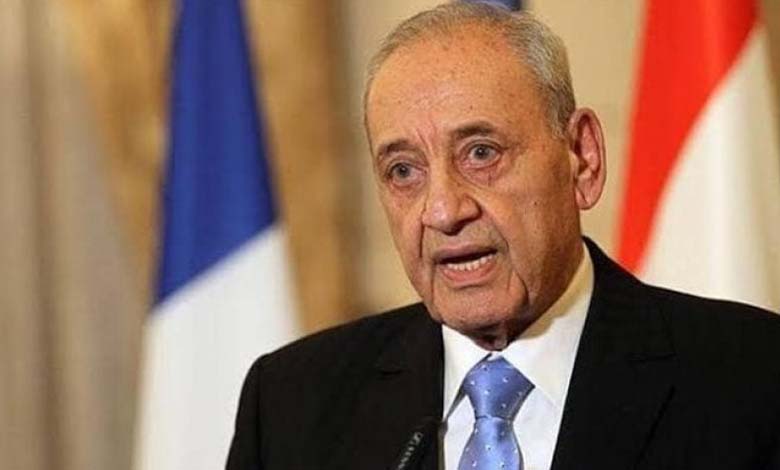
Ambassadors of the United States, France, Saudi Arabia, Egypt, and Qatar, part of the quintet, resume their activities on Monday in Beirut to urge Lebanese stakeholders to expedite the resolution of the presidential crisis, while behind the scenes, the committee witnesses a Franco-American conflict for control over the dossier.
France insists on affirming that it remains present and closely monitors the Lebanese situation and the presidential file, attempting to contribute through the quintet or through its diplomacy and circles to address the situation in the south while simultaneously working towards electing a president for the Republic.
According to a Lebanese diplomatic source, there is a Franco-American competition to address the land disputes between Lebanon and Israel. Washington expresses displeasure towards the French for not informing it in advance about the solutions paper for implementing Resolution 1701.
Reports indicate a rise in divergences and disagreements between Washington and Paris on several issues related to Lebanon, including the situation in southern Lebanon, the presidential vacuum, and the oil sector. Washington reportedly rejected the proposed French solution paper for the south, while the American presidential envoy, Amos Hochstein, wants the solution to be exclusively tied to it.
Some argue that the American vision, which combines the southern and presidential files in one basket, faces opposition from Paris, which believes that it is necessary to separate the two files, especially since the situation in the south is linked to the Gaza war, which is likely to prolong, and Lebanese deadlines should not be linked to it.
Paris attempts, by activating the work of the quintet on the presidency and the political solution, as well as through its initiative regarding the southern front, to prevent Washington from monopolizing the solution. France presents itself as a European or Western force capable of communicating with everyone, especially with Hezbollah in Lebanon and with Iran.
The quintet seeks to push the Lebanese towards a broad consensus on the choice of a third neutral candidate, through comprehensive action involving all orientations and blocs, starting with meetings with the Speaker of Parliament, Nabih Berri, and the Maronite Patriarch, Cardinal Mar Bechara Boutros Rai, then continuing on Tuesday with meetings with the outgoing President Michel Aoun, the leader of the Lebanese Forces party, Samir Geagea, the former leader of the Progressive Socialist Party, Walid Jumblatt, and other meetings to be scheduled subsequently.
According to available information, the quintet does not have a new initiative in this round, especially as most of its members link the resolution of the presidential crisis to a ceasefire in Gaza, and the quintet’s calculations take into account that ending the fighting in Gaza could constitute a positive factor for changing or improving the prospects for dealing with the Lebanese presidential file.
The French presidential envoy, Jean-Yves Le Drian, currently only follows the developments of the quintet in Lebanon and the movements of the National Center bloc through direct contacts, as he recently did with Speaker Berri, or through the French ambassador in Beirut, while trying to control the scene.
Amidst all these issues, the non-signing of the French company Total, which won contracts with a consortium of companies for oil and gas exploration in blocks 8 and 10 in the sea off southern Lebanon, for the start-up contracts at the end of last month, raises questions about the reasons behind this step, and whether it means its withdrawal or continuation, as there are indications that American companies aspire to take over exploration, extraction, and export operations later.
Security sources believe that the reasons for postponing the meeting, called by France to support the Lebanese army, are due to many political considerations and specific concerns. They consider that the dispute revolves around the type of support that will be provided, which was a major reason for postponing the meeting.
-
Multi-front conflict or de-escalation… Scenarios of escalating tension between Hezbollah and Lebanon
French contacts have not succeeded in gathering the positions leading to securing what the Lebanese army needs, as was anticipated at the “Paris conference”, to overcome the current difficulties and prepare for major tasks ahead and to fully assume its responsibilities. There are other obstacles that prevented this and led to the postponement of this conference.






